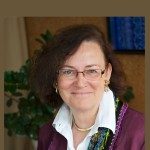Lien vers Pubmed [PMID] – 24926664
PLoS ONE 2014;9(6):e99797
Identification of the causative mutations in patients affected by autosomal recessive non syndromic deafness (DFNB forms), is demanding due to genetic heterogeneity. After the exclusion of GJB2 mutations and other mutations previously reported in Tunisian deaf patients, we performed whole exome sequencing in patients affected with severe to profound deafness, from four unrelated consanguineous Tunisian families. Four biallelic non previously reported mutations were identified in three different genes: a nonsense mutation, c.208C>T (p.R70X), in LRTOMT, a missense mutation, c.5417T>C (p.L1806P), in MYO15A and two splice site mutations, c.7395+3G>A, and c.2260+2T>A, in MYO15A and TMC1 respectively. We thereby provide evidence that whole exome sequencing is a powerful, cost-effective screening tool to identify mutations causing recessive deafness in consanguineous families.



